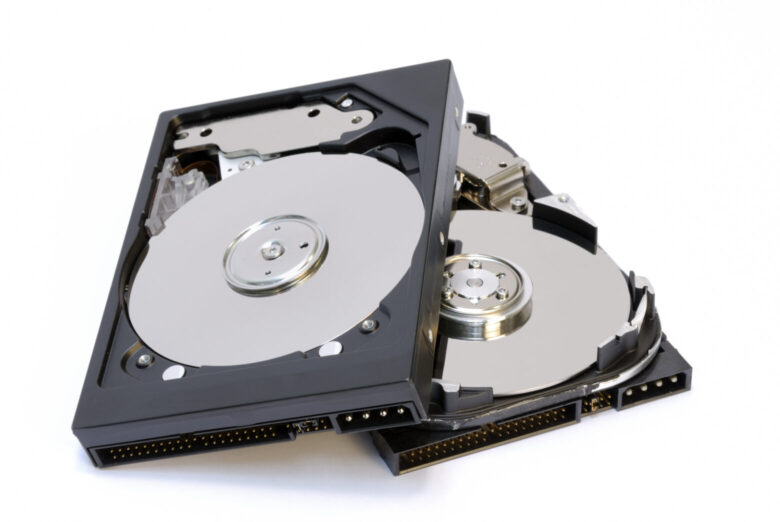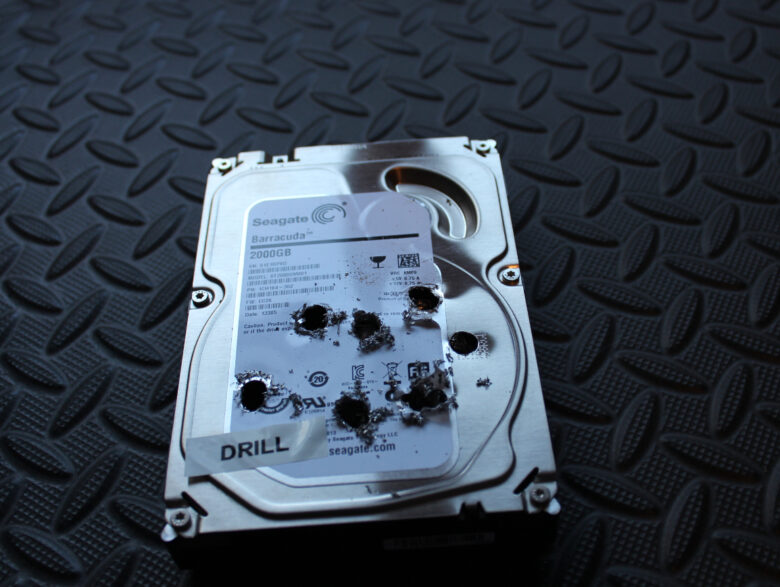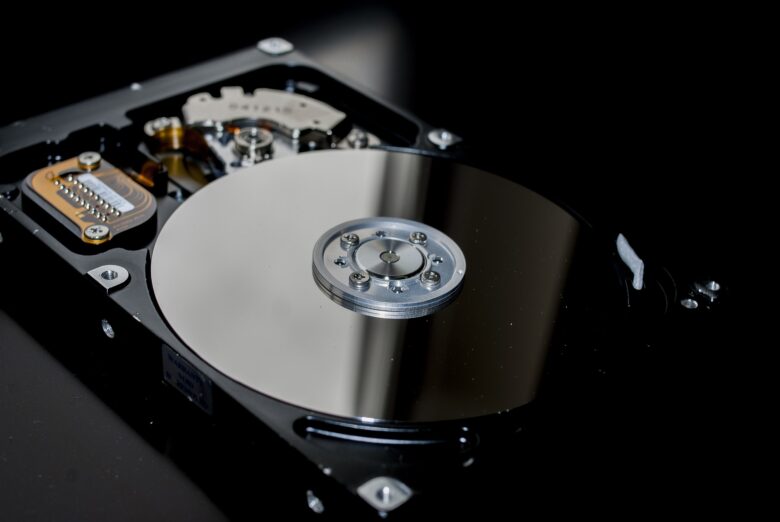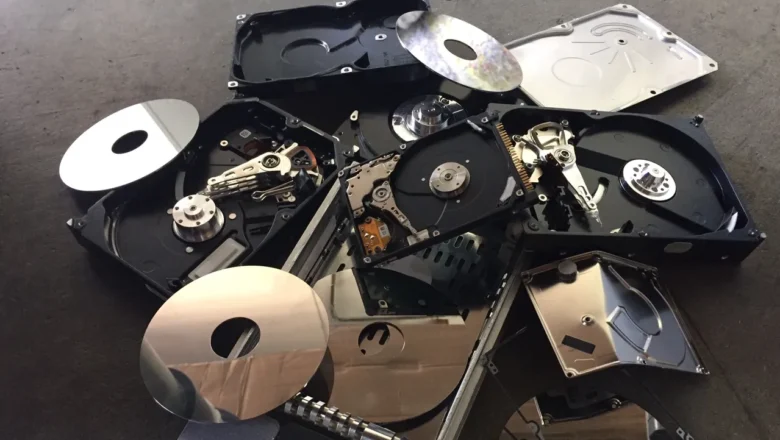Did you know that simply deleting the files on your hard drive doesn’t do the trick? If you’re getting rid of your computer, it’s essential to delete all the information on your hard drive securely. But don’t worry, following these vital tips in hard drive shredding will help ensure that all your data is gone for good!
Contents
What is Hard Drive Shredding, and Why Do You Need It?
Hard drive shredding is the process of physically destroying a hard drive so that the data it contains can no longer be accessed. While there are several ways to do this, the most effective method is to use a commercial-grade shredder. This shredder is designed to destroy hard drives, making it impossible to retrieve any of the data they contain.
Hard drive shredding is an essential step in protecting your company’s data. If you dispose of hard drives without first shredding them, the data they contain could fall into the wrong hands and be used to commit fraud or identity theft. You can protect your company and customers from data breaches by ensuring that your hard drives are properly shredded.
Types of Hard Drive Shredding

Source: legalshred.com
There are two main types of hard drive shredding: physical and logical.
Physical hard drive shredding involves physically destroying the hard drive so it can no longer be used. This can be done with a commercial-grade shredder, a hammer, or a drill. While this method is effective, it’s important to note that it will also destroy any other data storage devices connected to the hard drive, such as USB or external hard drives.
Logical hard drive shredding involves using software to delete all the data on the hard drive. This method is not as effective as physical destruction, as the data can still be recovered with the right software. However, it’s a good option if you’re disposing of many hard drives and don’t have the time or resources to destroy each one physically.
Factors to Consider When Hard Drive Shredding
When deciding whether or not to shred your hard drive, there are a few factors you’ll need to consider.
- First, think about how much data is stored on the hard drive and how sensitive that data is. If the hard drive contains sensitive information, such as customer data or financial records, it’s essential to shred it to prevent that information from falling into the wrong hands.
- Second, consider how you will be disposing of the hard drive. If you’re throwing it away, there’s a good chance that someone could find it and access the data on it. However, if you’re recycling the hard drive, most recycling facilities have processes to ensure that the data on the hard drive is destroyed.
- Third, think about the cost of hard drive shredding. Shredding a hard drive can be expensive, especially if you dispose of many of them. However, the cost of not shredding your hard drive could be much higher if the data on it falls into the wrong hands.
How to Search for a Hard Drive Shredding Service?

Source: itprotoday.com
If you’re ready to shred your hard drive, the first step is to find a reputable hard drive recycling service like bigdatasupplyinc.com. There are a few things you’ll want to look for when searching for a shredding service:
- First, make sure the service is certified. Certification ensures that the service meets specific standards for hard drive destruction.
- Second, check to see if the service offers pick-up and drop-off options. This can be convenient if you don’t have the time or resources to transport the hard drives yourself.
- Third, compare prices. Hard drive shredding services can vary in price, so getting quotes from several companies is essential before deciding.
Hard Drive Shredding Tips
Now that you know the basics of hard drive shredding, here are a few tips to help you get started:
- Schedule regular hard drive shredding. Shredding your hard drives regularly is the best way to protect your data.
- Keep track of all the hard drives you shred. This will help you keep track of which hard drives contain sensitive information.
- Destroy all types of data storage devices. In addition to hard drives, you should also shred USB drives, external hard drives, and any other kind of data storage device.
- Use a certified hard drive shredding service. Certification ensures that your hard drives will be destroyed appropriately.
- Compare prices from different providers. Hard drive shredding services can vary in price, so comparing quotes from several companies is essential.
By following these tips, you can ensure that all the data on your hard drive is securely destroyed.
The Process of Hard Drive Shredding

Source: shredrightnow.com
Now that you know what hard drive shredding is and why it’s essential, here are a few tips to help you get started:
- Choose the Right Type of Shredder: As mentioned above, there are two main types of hard drive shredders: physical and logical. If you’re disposing of a small number of hard drives, you can probably get away with using a logical shredder. However, if you’re disposing of many hard drives, you’ll need to use a physical shredder. Commercial-grade shredders can be expensive, but they’re worth the investment if you must destroy many hard drives.
- Connect the Hard Drive to the Shredder: Once you’ve chosen the correct type of shredder, it’s time to connect the hard drive. If you’re using a physical shredder, you’ll need to remove the hard drive from the computer and connect it to the shredder. If you’re using a logical shredder, you can leave the hard drive in the computer.
- Shred the Hard Drive: Once the hard drive is connected to the shredder, you must turn it on and let it do its job. Physical shredders will destroy the hard drive, making it impossible to retrieve any of the data it contains. Logical shredders will delete all the data on the hard drive, but it can still be recovered with the right software.
- Dispose of the Shredded Hard Drive: Once the hard drive has been shredded, you’ll need to dispose of it properly. Physical shredders will generate a lot of dust, so it’s important to vacuum up any debris before disposing of the shredded hard drive. Logical shredders won’t generate dust, but you should still dispose of the hard drive properly to ensure that no one can access the data it contains.
Benefits of Hard Drive Shredding
There are many benefits to hard drive shredding, including:
- Protecting Your Company’s Data: If you dispose of hard drives without first shredding them, the data they contain could fall into the wrong hands and be used to commit fraud or identity theft. You can protect your company and customers from data breaches by ensuring that your hard drives are properly shredded.
- Preventing Data Breaches: Data breaches are a serious problem for companies of all sizes. If the data on your hard drives is not destroyed correctly, it could be accessed by unauthorized individuals, leading to a data breach. Hard drive shredding is an effective way to prevent data breaches and protect your company’s confidential information.
- Complying with Privacy Laws: In many countries, some laws require companies to destroy customer data securely. Hard drive shredding is one of the most secure data destruction methods and can help you comply with these laws.
- Recycling: Once a hard drive has been shredded, it can be recycled. This helps reduce the amount of electronic waste that ends up in landfills.

Source: usatoday.com
Conclusion
Following these essential tips for hard drive shredding, you can ensure that all your company’s data is securely destroyed. Hard drive shredding is a crucial step in protecting your business from data breaches. If you dispose of hard drives without first shredding them, you could be putting your company at risk.
You can protect your business and customers by taking the time to shred your hard drives properly.
